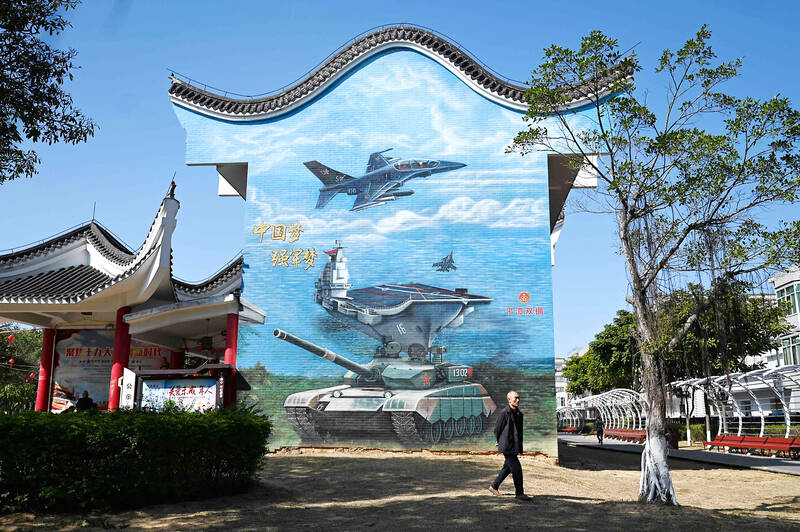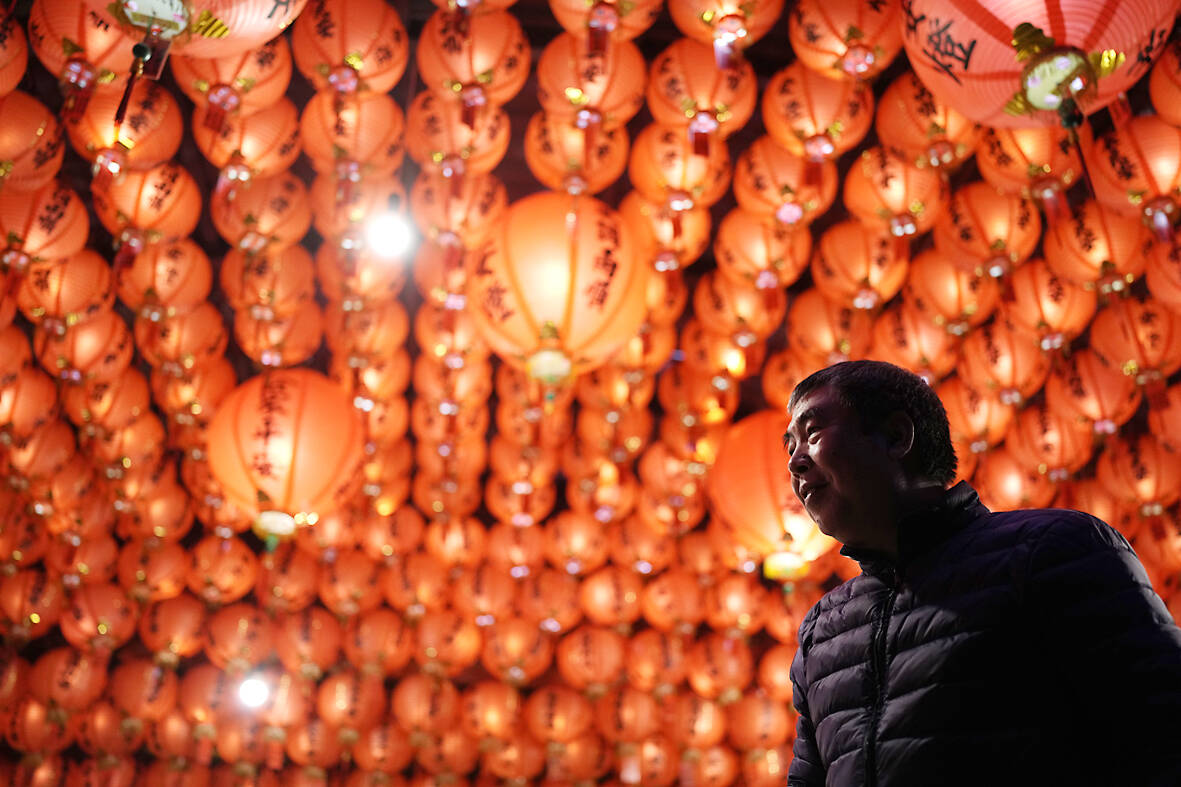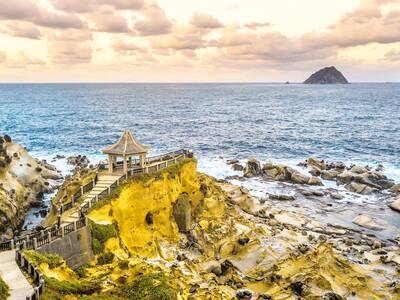China conducted joint combat patrols around Taiwan on Wednesday, in a potential resumption of military intimidation after Taiwan’s presidential election last weekend. But analysts say the reaction from China’s ruling Communist party has been relatively muted so far, despite the success of the ruling Democratic Progressive party (DPP) — which Beijing loathes as “separatists” — in retaining the presidency.
Yesterday morning the Ministry of National Defense reported the People’s Liberation Army had sent 24 planes and five navy vessels into Taiwan’s air defense identification zone in the previous 24 hours, the first incursion of significant size since November. The air and sea craft conducted joint patrols including crossing the unofficial maritime border, the median line, it said.
The patrol followed the shock announcement on Monday that the government of Nauru was severing ties with Taiwan and switching recognition to China, the 10th diplomatic ally of Taiwan that Beijing has managed to flip since the DPP and President Tsai Ing-wen (蔡英文) won the 2016 election.

Photo: AFP
Beijing has also issued angry statements to other governments that congratulated president-elect William Lai (賴清德) on his win. English-language state media, especially the hawkish Global Times tabloid, has run dozens of negative articles and editorial pieces about the election.
However, beyond these incidents, Beijing’s reaction to the election has been relatively muted, approaching nowhere near the scale of its previous outbursts over the visit of then US House speaker Nancy Pelosi to Taiwan or the US meeting between Tsai and Pelosi’s successor, Kevin McCarthy.
“It’s a pretty positive start to this period, but I think we still need to see what will happen, it’s a very interactive situation,” said Amanda Hsiao (蕭嫣然), a Taipei-based senior China analyst with the International Crisis Group.

Photo: AP
China engaged in influence operations ahead of Taiwan’s vote, but visibly reduced its military activity, which analysts had linked to a perception that any threatening activity would probably bolster the pro-sovereignty DPP.
Analysts also pointed to recent significant improvements in the China-US relationship.
“It’s not like Beijing just decided to, there’s been a concerted attempt by Washington and Taipei to signal continuity and to lower the temperature,” Hsiao said.
“A key factor for why China’s response has been measured, perhaps the most important, is that they don’t want to tear up the gains made in improving US-China relations.”
INAUGURATION
However, a stronger response may come when Lai is inaugurated in May.
Ja-Ian Chong, a political scientist at the National University of Singapore, said there was likely to be increased pressure from Beijing in the lead up, as it “probably wants to see how much it can get Lai to concede and then to hold him to their interpretations of those concessions.”
Lai is not expected to deliver what Beijing wants, which would effectively be a reversal of the DPP’s platform of resisting China’s claims and promoting Taiwan’s sovereignty.
“[Beijing] often waits for a justification for its actions, and we know Lai is going to give them that because he’s not going to say what they want him to say,” said Hsiao. “That alone means Beijing will have something to point to if they want to point to something to justify a larger response.”
But Hsiao said the size and intensity of that response shouldn’t be assumed, and would depend on how Beijing, Taipei and Washington communicate and interact in the lead-up.
Chong said Beijing would probably try to test or goad Lai into a provocation after his inauguration.
“The PRC [People’s Republic of China] is probably going to see if they can force Lai into making a mistake or frustrating him into making a rash move, which they can then paint as Lai being provocative and seek international agreement on.”
‘A CONTINUATION, IF NOT INTENSIFICATION’
The election result was closely watched inside China, and the DPP’s lack of a mandate in both the presidential and legislative votes prompted increased discussion about winning over Taiwanese through non-violent means, while still preparing for a military intervention. Polls show that an overwhelming majority of the population rejects the prospect of Chinese rule, but the minority win allowed China’s Taiwan Affairs Office to argue on Sunday that the DPP “does not represent the mainstream public opinion on the island.”
On Monday parts of a 2022 speech by China’s leader, Xi Jinping (習近平), who has previously described unification of Taiwan with China as a “historical inevitability,” were newly published in state media, urging CCP workers to do better at winning the hearts and minds of Taiwanese, and to “develop and strengthen the patriotic, pro-unification forces in Taiwan, [and] oppose the separatist acts of ‘Taiwan independence.’”
Chong said: “At face value, the Xi speech suggests a continuation, if not intensification, of cognitive, psychological, economic and political pressure in the form of isolating Taiwan, co-opting entities and individuals in Taiwan, placing pressure on Taiwanese businesses, disinformation, and the like.”
In an article published the day after the vote, Zheng Yongnian, a professor of international relations at the Chinese University of Hong Kong, Shenzhen, wrote: “there is a need to actively win over the new forces of Generation Z … to promote the resolution of the Taiwan issue in the new era, we must pay attention to innovative cross-strait communication platforms, focusing on the use of new media platforms such as Xiaohongshu and Douyin, to circulate and change the identity of young people in Taiwan.”
In recent years, there has been a growing concern in some circles that the popularity of Chinese social media apps among young Taiwanese is influencing generation Z into a more pro-Chinese worldview.

The low voter turnout for the referendum on Aug. 23 shows that many Taiwanese are apathetic about nuclear energy, but there are long-term energy stakes involved that the public needs to grasp Taiwan faces an energy trilemma: soaring AI-driven demand, pressure to cut carbon and reliance on fragile fuel imports. But the nuclear referendum on Aug. 23 showed how little this registered with voters, many of whom neither see the long game nor grasp the stakes. Volunteer referendum worker Vivian Chen (陳薇安) put it bluntly: “I’ve seen many people asking what they’re voting for when they arrive to vote. They cast their vote without even doing any research.” Imagine Taiwanese voters invited to a poker table. The bet looked simple — yes or no — yet most never showed. More than two-thirds of those

In the run-up to the referendum on re-opening Pingtung County’s Ma-anshan Nuclear Power Plant last month, the media inundated us with explainers. A favorite factoid of the international media, endlessly recycled, was that Taiwan has no energy reserves for a blockade, thus necessitating re-opening the nuclear plants. As presented by the Chinese-language CommonWealth Magazine, it runs: “According to the US Department of Commerce International Trade Administration, 97.73 percent of Taiwan’s energy is imported, and estimates are that Taiwan has only 11 days of reserves available in the event of a blockade.” This factoid is not an outright lie — that

Former Chinese Nationalist Party (KMT) chairwoman Hung Hsiu-chu’s (洪秀柱) attendance at the Chinese Communist Party’s (CPP) “Chinese People’s War of Resistance Against Japanese Aggression and the World Anti-Fascist War” parade in Beijing is infuriating, embarrassing and insulting to nearly everyone in Taiwan, and Taiwan’s friends and allies. She is also ripping off bandages and pouring salt into old wounds. In the process she managed to tie both the KMT and the Democratic Progressive Party (DPP) into uncomfortable knots. The KMT continues to honor their heroic fighters, who defended China against the invading Japanese Empire, which inflicted unimaginable horrors on the

Sitting on a bus bound for Heping Island (和平島), at the start of my first visit to Keelung in years, I was hell-bent on visiting a place of considerable historical interest, even though I knew that it wasn’t officially open to the public. In 2011, archaeologists working in the densely populated southern half of the island unearthed the foundations of the Convento de Todos los Santos (Convent of All Saints, 諸聖教堂), a Catholic house of worship established during Spain’s 1624-1642 occupation of northern Taiwan. I’d heard about its rediscovery a while ago, but it wasn’t until I read a scholarly